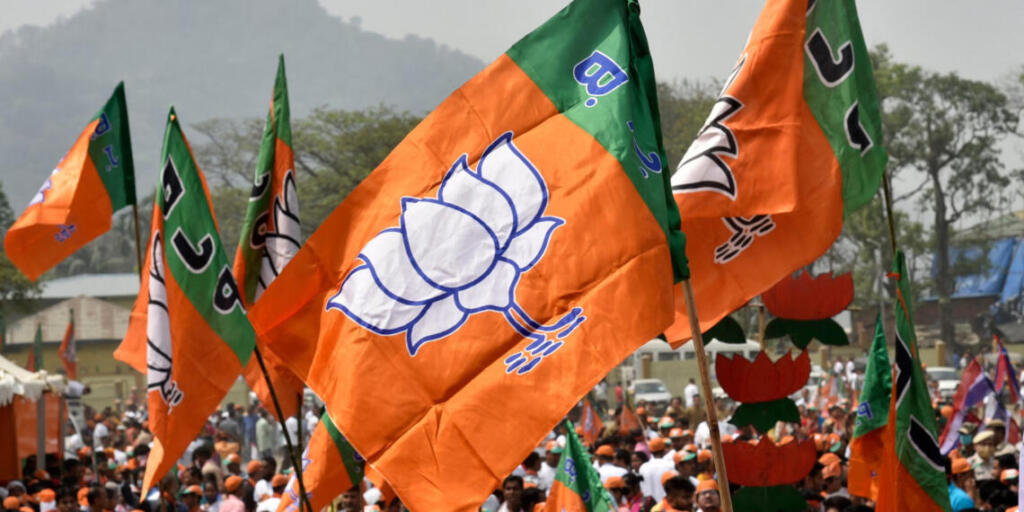The new chief of the Bharatiya Janata Party (BJP) faces several serious challenges. Overcoming complacency, improving candidate selection, and enhancing coordination with local activists are among the key issues. With the swearing-in of Modi 3.0’s cabinet, it has become clear that the current BJP president, JP Nadda, will be part of the new government.
Adhering to the BJP’s principle of ‘one person, one position,’ it is certain that the party will have a new president in the coming weeks. With three crucial state elections in the next six months, the new president will have to undertake some significant tasks immediately.
1. Reaching out to party workers
A major reason for the decline in BJP’s seats is dissatisfaction among party workers. Devoted party workers are not receiving the respect and recognition they deserve. In many areas, there has been a lack of coordination between candidates and party workers. For example, defeated Energy Minister R.K. Singh from Ara didn’t have proper coordination with party workers.
There is a need to adopt a new perspective of involving workers in ticket distribution, advertising, and campaign strategies. Directly involving workers instead of adopting a top-down approach by the party president can significantly boost morale.
2. Centralized decision-making
There is a lack of decentralization in the decision-making process at the district or block level of the BJP. Most local officials lack decision-making power, which makes them feel helpless. The detrimental effects of giving tickets to candidates from other parties and unpopular candidates have been evident.
Except for K. Annamalai in Tamil Nadu, no prominent figure from any state has been given the responsibility of making decisions. Empowering decision-making at the lower levels will facilitate communication, ultimately reaching the workers.
3. Reforming state units
Some state units of the BJP are facing serious issues. In West Bengal, senior leader Subhendu Adhikari and centrally appointed leaders for the election have not been seen in high regard after the election failure. Former party chief Dilip Ghosh is prepared for rebellion.
In West Bengal, the fight against bias and arrogance is prevalent, leading to weak coordination and disorganized campaigns. The situation is not much different in other state units in eastern and northern India. It needs to be rectified at war footing.
4. Understanding what went wrong in Uttar Pradesh
The BJP lost 29 seats in the Hindi heartland state of Uttar Pradesh. Even in Ayodhya, where the construction of the Ram Temple was carried out under the Prime Minister’s leadership, the party faced defeat. Several reasons are emerging. Firstly, the candidates fielded by the party appeared too rigid in the field, which made their image overly powerful for the people.
Secondly, there was a lack of coordination between local activists and top leadership. The leaders did not hear the demands of the workers because they became complacent. Thirdly, they were resolving the problems created by the existing MPs by invoking the name of Prime Minister Narendra Modi. If anything, UP’s loss shows that complacency can be devastating. Due to several by-elections in the state, the new BJP chief faces significant challenges.
5. Rejuvenating Punjab
Punjab is undergoing political and social changes. Discussions on the ‘tea shop’ in urban and semi-urban groups reflected people’s opinions in villages. Inclusion of pop culture, glamorization of violence, drugs, and declining prosperity have had detrimental effects on the mentality of rural people.
Now, more and more voters in villages are seeing themselves as independent of urban mentality. Cash is being circulated by determined evangelicals to make Punjab a Christian state. Khalistani elements are rapidly filling the void. Violence against farmers and statements by the Indian government to handle it have divided Punjab.
A staunch Khalistani has won from the Khadoor Sahib Lok Sabha seat. Despite experiencing all this firsthand, the BJP did not target the rural voters as it should have.
In a volatile border state like Punjab, this ‘it’s okay’ attitude will jeopardize the BJP’s chances, endanger national security, and lead to mass conversions. The BJP needs a new perspective, free from old and disorganized thinking, to protect the sentiments around the border.
Conclusion
The new BJP chief faces many challenges, such as overcoming complacency, improving candidate selection, and enhancing coordination with local activists. The resolution of these challenges is crucial for the success of the BJP, especially considering the upcoming state elections. By empowering lower-level decision-making, reforming state units, and establishing better coordination with local activists, the BJP can reach new heights.”
ALSO READ: Oxford University’s Decision to Return This Stolen Item to India
